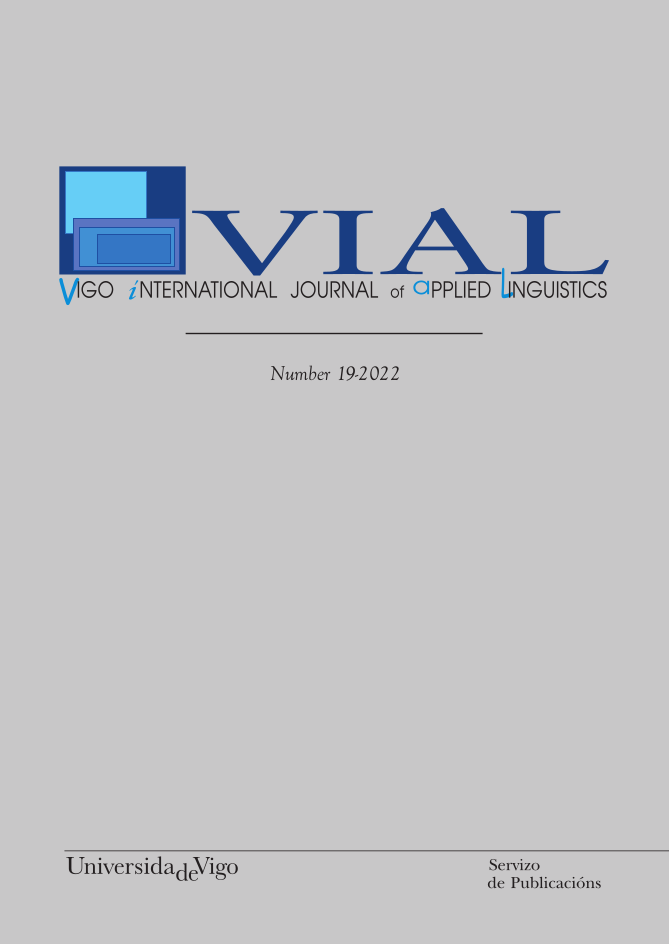Incidental Focus-on-Form characteristics: Predicting learner uptake.Formulaic vs. non-formulaic forms
DOI:
https://doi.org/10.35869/vial.v0i19.3760Palabras clave:
EFL, Focus on form, formulaic sequences, incidental FonF characteristics, successful uptakeResumo
A substantial number of studies have investigated the efficacy of incidental focus on form (FonF) measured through (successful) uptake rate in teacher-learner interactions in communicative contexts and have established a link between learners’ (successful) uptake of linguistic forms and their second language learning. In this line of research, the analysis of uptake and FonF characteristics mediating learners’ (successful) uptake has been limited to linguistic forms of grammar, vocabulary, pronunciation, and spelling (non-formulaic forms). However, formulaic sequences, including idioms, collocations, lexical bundles, and compounds (formulaic forms), have received scant attention in FonF research. This study examined incidental FonF characteristics that best predicted learners’ (successful) uptake of formulaic forms and compared the findings with the variables that mediate the (successful) uptake of non-formulaic forms targeted in focus-on-form episodes (FFEs). To this end, 30 hours of audio-recorded teacher-learner interactions in primarily communicative activities from English as a foreign language classes were examined. The findings showed that learners’ attention was drawn to non-formulaic forms more frequently than formulaic forms in FFEs. Nonetheless, learners produced (successful) uptake more often when formulaic forms were targeted in FFEs than non-formulaic forms. Logistic regression analyses showed that FonF characteristics that predicted learners’ production of (successful) uptake were different for formulaic vs. non-formulaic forms targeted in FFEs.
Descargas
Descargas
Publicada
Número
Sección
Licenza
Libros UVigo é o portal de publicación en acceso aberto das revistas da Universidade de Vigo. A posta a disposición e comunicación pública das obras no portal efectúase baixo licenzas Creative Commons (CC).
Para cuestións de responsabilidades, propiedade intelectual e protección de datos consulte o aviso legal da Universidade de Vigo.



